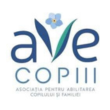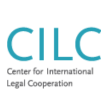Anunțuri de Angajare
- Detalii
- Categorie: Angajări
Extended deadline for Climate Change Mitigation and MRV Systems Thematic Working Group Coordinator - PI "National Office for Implementation of Environmental Projects"
Informațiile prezentate în articolul de mai jos pot să nu mai fie actuale sau să nu mai reflecte activitățile și programele curente. Anunțul este păstrat în arhivă pentru a asigura transparența și accesul public la informațiile despre inițiativele și proiectele implementate anterior.
|
I. Position Information |
||
|
Project title:
Job title (part-time position): Indicative workload: Duration of employment: |
Republic of Moldova: Preparation of First Biennial Transparency Report to the United National Framework Convention on Climate Change. Climate Change Mitigation and MRV Systems Thematic Working Group Coordinator Up to 10 working/days per month December 2022 – June 2024, with possibility of extension until December 2024 |
|
|
II. Background |
||
|
The project aims to prepare and submit the First Biennial Transparency Report (BTR1) of the Republic of Moldova to the UNFCCC. The project will also contribute to strengthening capacities and improving the institutional arrangements and framework to allow for continuous and sustainable reporting. The BTR1 project is prepared in line with the GEF-7 climate change mitigation objective CCM-3: Foster Enabling Conditions to Mainstream Mitigation Concerns into Sustainable Development Strategies. The project will have one outcome which is the Republic of Moldova updates tools and approaches to meet its BTR1 reporting requirements under the Paris Agreement. The two expected outputs under this outcome are as following: Output 1: BTR1 for the Republic of Moldova prepared and submitted to UNFCCC, by 31 December 2024. Output 2: A self-assessment and stocktaking exercise for preparation of subsequent BTR completed. Under the first output, the project will support the Republic of Moldova to prepare and submit its BTR1 to the UNFCCC. The preparation of BTR1 will be in line with the modalities, procedures and guidelines for the transparency framework for action and support contained in the annex to Decision 18/CMA.1 and Annexes I to V of Decision -/CMA3. The BTR1 project will build on findings and recommendations from previous NCs and BURs as well as recommendations resulting from the International Consultation and Analysis (ICA) process. Activities to be undertaken under the first output will result in the preparation of the following chapters of the BTR1: I. National inventory report of anthropogenic emissions by sources and removals by sinks of greenhouse gases; II. Information necessary to track progress made in implementing and achieving nationally determined contributions under Article 4 of the Paris Agreement; III. Information related to climate change impacts and adaptation under Article 7 of the Paris Agreement; IV. Information on financial, technology development and transfer and capacity-building support needed and received under Articles 9–11 of the Paris Agreement; V. Other relevant information (e.g., gender and climate change). |
||
|
III. Organizational Context |
||
|
The project is executed by the BTR1 Project Management Unit (PMU) established by the Public Institution “Environmental Projects National Implementation Office” (P.I. “EPNIO”) of the Ministry of Environment (MoEN), on behalf of the Government of the Republic of Moldova, and in consultation with the UNEP. As national executing agency, the PMU established by the P.I. “EPNIO” is primarily responsible for the planning and management of the project activities, accounting, reporting, monitoring and evaluation of the project. Under the guidance and direct supervision of the National Project Manager (NPM), the Climate Change Mitigation and MRV Systems Thematic Working Group Coordinator will lead the developing of: · Chapter 2: ‘Information necessary to track progress made in implementing and achieving nationally determined contributions under Article 4 of the Paris Agreement’ of the BTR1 of the RM to the UNFCCC; · Chapter 4: ‘Information on financial, technology development and transfer and capacity-building support needed and received under Articles 9-11 of the Paris Agreement’ of BTR1 of the RM to the UNFCCC. Relevant project activities that will involve the services of the Climate Change Mitigation and MRV Systems Thematic Working Group Coordinator are as following: Information necessary to track progress made in implementing and achieving the nationally determined contribution under Article 4 of the Paris Agreement i. Describe and document information on institutional arrangement in place to track progress made in implementing and achieving the Republic of Moldova’s NDC under Article 4. ii. Provide information on population and demographic situation profile, administrative-territorial organization, geographic and natural resources profiles, climate and economic profiles, as well as on current state of the national economy (focus should be on energy, transport, industry, agriculture, buildings, forestry, waste, sewerage and water supply sectors) relevant to progress made in implementing and achieving RoM’s NDC under Article 4 of the Paris Agreement. iii. Compile and draft Section 2.1: ‘National circumstances relevant to the GHGs emissions and removals and institutional arrangement relevant to track progress made in implementing and achieving NDC’ of the BTR1 of the RoM to the UNFCCC. iv. Describe the updated nationally determined contribution of the RoM under Article 4 of the Paris Agreement, including: target and description; target year; base year or starting point and its respective value; period for implementation; scope and coverage, including, as relevant, sectors, categories, activities, sources and sinks, pools and gases; intention to use cooperative approaches that involve the use of internationally transferred mitigation outcomes under Article 6 of the Paris Agreement; any updates or clarifications of previously reported information (e.g., recalculation of previously reported inventory data, or greater detail on methodologies or use of cooperative approaches). v. Describe the qualitative or quantitative indicators selected to track progress towards the implementation and achievement of the updated NDC under the Paris Agreement, including, as relevant: net GHG emissions and removals, percentage reduction of GHG intensity, relevant qualitative indicators for a specific policy or measure, mitigation co-benefits of adaptation actions (e.g., hectares of reforestation, percentage of renewable energy use or production, share of non-fossil fuel in primary energy consumption and non-GHG related indicators). vi. Describe methodologies and/or accounting approach used, as applicable, for economy-wide absolute emission reduction target and each indicator identified, including: key parameters, assumptions, definitions, data sources and models used; IPCC guidelines used; metrics used; where applicable to the updated NDC, any sector-, category- or activity-specific assumptions, methodologies and approaches consistent with IPCC guidance, taking into account any relevant decision under the Convention (including: the approach used to address emissions and subsequent removals from natural disturbances on managed lands; the approach used to account for emissions and removals from harvested wood products; the approach used to address the effects of age-class structure in forests; methodologies used to estimate mitigation co-benefits of adaptation actions); methodologies associated with any cooperative approaches that involve the use of internationally transferred mitigation outcomes towards its NDC under Article 4, consistent with CMA guidance on cooperative approaches under Article 6 of the Paris Agreement; methodologies used to track progress arising from the implementation of policies and measures; any other methodologies related to the RoM’s NDC under Article 4 of the Paris Agreement; any conditions and assumptions relevant to the achievement of the updated NDC of the RoM under Article 4. vii. Compile and draft Section 2.2: ‘Description of the nationally determined contribution under Article 4 of the Paris Agreement’ of the BTR1 of the RoM to the UNFCCC. viii. Document and describe in tabular format, information on climate change mitigation policies and measures by selected sectors, indicating which GHGs are affected by which policies and measures, including: the name of policy or measure; brief description of the policy or measure (including estimated changes in activity levels and/or emissions and removals due to adopted and implemented policies and measures reported and a brief description of estimation methods); objectives and/or activity affected (in quantitative terms, to the extent possible); type of instrument (i.e., economic, fiscal, voluntary agreement, regulatory, information, education, research or other); status of implementation and time frame for implementation (i.e., no longer in place, in the planning stage, has been adopted or is under implementation); sectors affected (i.e., energy, industry, transport, buildings, industrial processes and product use, agriculture, LULUCF, waste management, other sectors); the GHGs affected (CO2, CH4, N2O, HFCs, PFCs, SF6 and NF3); start year of implementation; implementing entity or entities; estimate of mitigation impact for a particular year (in kt CO2 eq.); information on costs of policy or measure (for adopted and implemented measures include funds already provided and/or future budget allocated); in extent possible, the non-GHG mitigation benefits, including mitigation co-benefits resulting from implemented adaptation actions; and how the mitigation actions interact with each other, as appropriate. ix. Describe the way in which progress with policies and measures to mitigate GHG emissions is monitored and evaluated over time. Provide status report on institutional arrangements for the monitoring of GHG mitigation policies in selected sectors. x. Compile and draft Section 2.3: ‘Mitigation policies and measures, actions and plans, including those with mitigation co-benefits resulting from adaptation actions, related to implementing and achieving a nationally determined contribution under Article 4 of the Paris Agreement’ of the BTR1 of the RoM to the UNFCCC. xi. Update for selected sectors (i.e., energy, industry, transport, buildings, industrial processes and product use, agriculture, LULUCF, waste management, other sectors) the mitigation options leading to achieving the updated nationally determined contribution under Article 4 of the Paris Agreement. xii. By using available models and software (i.e., ENPEP, LEAP, IPCC software, etc.), update to the 2040 horizon, for selected sectors and on a gas-by-gas basis (CO2, CH4, N2O, HFCs, PFCs, SF6 and NF3), the following mitigation scenarios: (1) WEM – with existing measures scenario (projections shall encompass currently implemented and adopted policies and measures) and (2) WAM – with additional measures (projections shall encompass planned policies and measures), when emissions projections shall be presented relative to actual inventory data for the preceding years (the starting point should be the most recent inventory year). xiii. For each model or approach used, in the extent possible, (1) explain for which gases and/or sectors it was used; (2) describe its type and characteristics (i.e., top-down model, bottom-up model, accounting model or expert judgment); (3) describe the original purpose that it was designed for and, if applicable, how it has been modified for climate change purpose; (4) summarize its strengths and weaknesses; (5) explain how it accounts for any overlap or synergies that may exist between policies and measures; (6) provide references to more detailed information related to each model or approach used; (7) report the main differences in assumptions, methods employed and results between the projections reported in the current submission and those reported in the previous submission; (8) discuss qualitatively and, where possible, quantitatively, the sensitivity of the projections to underlying assumptions; (9) report information on key underlying assumptions and values of variables, such as GDP growth, population growth, tax levels, international fuel prices and any relevant information on factors and activities for each sector. xiv. Analyze and present on a quantitative basis in a tabular format the projections and information on historical emissions and removals; projections shall be provided in an aggregated format for each sector as well as for a national total, using GWP values agreed upon by the COP (to ensure consistency with inventory reporting, emission projections related to fuel sold to ships and aircraft engaged in international transport shall be reported separately and not included in the national total); information should be presented for 1990, 1995, 2000, 2005 and subsequent years that end in either a zero or a five up to the most recent inventory year; projections should be presented, starting from the most recent inventory year and for subsequent years that end in either a zero or a five, extending at least 15 years from the most recent inventory year. xv. Compile and draft Section 2.4: ‘Projections of greenhouse gas emissions and removals’ of the BTR1 of the RoM to the UNFCCC. xvi. Compile and draft Chapter 2: ‘Information necessary to track progress made in implementing and achieving nationally determined contributions under Article 4 of the Paris Agreement’ of the BTR1 of the RoM to the UNFCCC. Information on financial, technology development and transfer and capacity-building support needed and received under Articles 9-11 of the Paris Agreement i. Compile information on national circumstances and institutional arrangements relevant to reporting on support needed and received. ii. Describe the underlying assumptions, definitions and methodologies used to provide information on support needed and received. iii. Provide information on financial support needed and received. iv. Provide information on technology development and transfer support needed and received under Article 10 of the Paris Agreement. v. Provide information on capacity-building support needed and received under Article 11 of the Paris Agreement. vi. Provide information on support needed and received for implementing Article 13 of the Paris Agreement and transparency-related activities. vii. Compile and draft Chapter 4: ‘Information on financial, technology development and transfer and capacity-building support needed and received under Articles 9-11 of the Paris Agreement’ of BTR1 of the RoM to the UNFCCC. |
||
|
IV. Key Tasks / Results Expected |
||
|
Key Tasks: · Assist the NPM in preparation of a work plan relevant to the activity; · Suggest on technical capacity building and participate in the sub-regional, regional and international trainings on mitigation measures analysis; · Assist the NPM in arranging the national review and training workshops on climate change mitigation policies and measures; · Overview the description of the nationally determined contribution under Article 4 of the Paris Agreement; · Overview the description of the mitigation policies and measures, actions and plans, including those with mitigation co-benefits resulting from adaptation actions, related to implementing and achieving a nationally determined contribution under Article 4 of the Paris Agreement; · Overview the development of the projections of greenhouse gas emissions and removals; · Advise on selection of macro-economic models for evaluating mitigation options and measures for GHG emission reduction; · Overview and select measures to mitigate climate change and identify the follow-up activities; · Advise the NPM on selection of priority mitigation technological needs, inclusive relevant environmental-sound technologies; · Analyze the cost-effectiveness of the mitigation technologies and the opportunities for their application; · Contribute substantially to the establishment of a database for mitigation technologies; · Assess the existing endogenous mitigation technologies for further promotion within the context of national circumstances; · Contribute substantially to development of Chapter 2: ‘Information necessary to track progress made in implementing and achieving nationally determined contributions under Article 4 of the Paris Agreement’ of the BTR1 of the RoM to the UNFCCC. · Contribute substantially to development of Chapter 4: ‘Information on financial, technology development and transfer and capacity-building support needed and received under Articles 9-11 of the Paris Agreement’ of the BTR1 of the RoM to the UNFCCC. |
||
|
Key Deliverables: · Chapter 2: ‘Information necessary to track progress made in implementing and achieving nationally determined contributions under Article 4 of the Paris Agreement’ of the BTR1 of the RoM to the UNFCCC; · Chapter 4: ‘Information on financial, technology development and transfer and capacity-building support needed and received under Articles 9-11 of the Paris Agreement’ of the BTR1 of the RoM to the UNFCCC; · Contribution to the developing pf the List of Acronyms, Abbreviations and Units, Executive Summary and Bibliography of the BTR1 of the RoM to the UNFCCC; · Common Tabular Formats (CTF) for the electronic reporting of the information necessary to track progress made in implementing and achieving nationally determined contributions under Article 4 of the Paris Agreement; · Reporting format for the description of a Party’s NDC under Article 4 of the Paris Agreement, including updates; · Common tabular formats (CTF) for the electronic reporting of the information on financial, technology development and transfer and capacity-building support provided and mobilized, as well as support needed and received, under Articles 9–11 of the Paris Agreement |
||
|
V. Recruitment Qualifications |
||
|
Education: |
Master’s Degree in Environmental Sciences, Biology, Agriculture, Forestry, Energy, Industry, Economics or another relevant field. Additional trainings and certifications in project related activities would be an advantage. |
|
|
Experience: |
· At least 5 years of professional experience in technical activities related to climate change mitigation assessments; · At least 4 years of demonstrated experience in projects with similar tasks (elaboration of national communications and biennial updated reports; elaboration of low emissions development strategies; elaboration of nationally determined contributions of the RoM to the Paris Agreement); · At least 3 years of work experience in leading teams of experts in national and/or regional projects supported by international organizations; · Experience in analysis and use of data sets using various tools and instruments (e.g., MS Excel, IPCC reporting guidance and software) demonstrated by previous assignments; · Excellent knowledge of GHG emissions projections and mitigation scenarios development demonstrated by previous assignments; · Knowledge of principles, legal and normative framework regulating the MRV systems under the UNFCCC and Paris Agreement, other relevant international conventions and protocols demonstrated by previous assignments will be a strong advantage; · Strong analytical and report writing skills demonstrated by previous assignments; · Strong communication and teamwork/coordination skills demonstrated by previous assignments. |
|
|
Language Requirements: |
Good command of Romanian, Russian and English languages. |
|
|
Interested individuals must submit the following documents/information to demonstrate their qualifications: 1. Proposal, explaining why incumbent is the most suitable for the work, including past experience in similar assignments, providing a brief information on above qualifications and methodology on how he/she will approach and conduct the work. 2. Financial proposal (in USD), specifying a fee per day. 3. CV, including past experience in similar projects. |
||
|
Financial proposal The Financial Proposal shall specify a daily lump-sum fee (indicating if it is negotiable). Payments will be made quarterly, based on the actual number of days worked, subject to the submission and approval by the National Project Manager of the activity reports around specific and measurable (qualitative and quantitative) deliverables specified in the TOR. |
||
|
Documents should be submitted by email on cancelaria@uipm.gov.md, no later than Monday, 21 November 2022, by 5:00 PM. New deadline Wednesday, 30 November 2022, by 5:00 PM. Only those shortlisted will be contacted. |
||
- Agenția de Guvernare Electronică relansează concursul de angajare pentru suplinirea postului vacant de analist/analistă de afaceri în domeniul tehnologiei informației
- Centrul de Drept al Avocaților(CDA) angajează Specialist/ă în comunicare
- Termeni de Referință pentru selectarea unui expert / a unei experte în vederea contractării serviciilor de consultanță pentru elaborarea Programului GSPR (Grup de Suport pentru Părinții Romi) și facilitarea sesiunilor în cadrul proiectului
- AO „Asociația pentru Abilitarea Copilului și Familiei AVE Copiii” angajează Pedagogi Sociali
- BNM angajează Expert principal incluziune financiară
Angajări pe Telegram
Nu pierdeți niciun anunț de angajare postat pe site! Urmăriți Canalul dedicat pe Telegram:

Top organizatii
2025 CIVIC DIGITAL SOLUTIONS
Email: support@portal.civic.md







